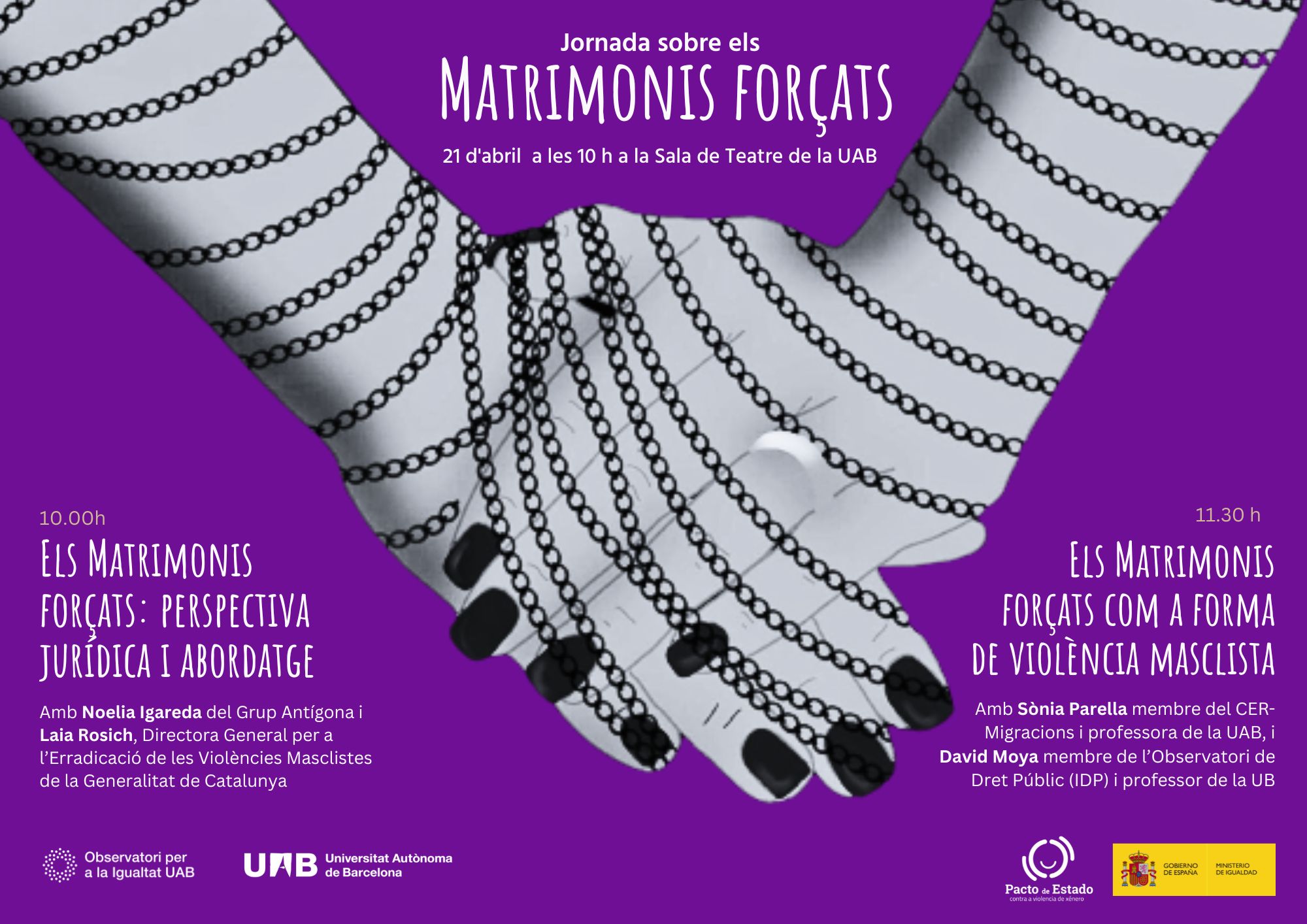Observatory for Equality to talk about forced marriages on 21 April at the UAB Theatre Hall

The debate on forced marriages will take place on Friday 21 April at 10 a.m. at the UAB Theatre Hall. The event will consist in two sessions: forces marriages from a legal perspective and forces marriages as a form of violence.
21/04/2023
The debate on forced marriages will take place on Friday 21 April at 10 a.m. at the UAB Theatre Hall. The event will consist in two, one-hour long sessions with the aim of studying the problem from a gender-based perspective.
The Secretary General of the UAB, Esther Zapater, will chair the session and give the floor to the guests. The first lecture, "Forced marriages: legal perspective and approach" at 10:00 a.m., will be given by Noelia Igareda from the Grup Antígona and Laia Rosich, general director for the eradication of mascist violence of the Government of Catalonia.
After a half hour break, the second session, "Forced marriages as a form of gender violence", will begin at 11:30 a.m. with Sònia Parella, member of CER-Migracions and lecturer at the UAB, and David Moya, member of the Observatori de Dret Públic and lecturer at the UB.
The United Nations defines forced marriages as "marriages in which one and/or both parties have not fully and freely expressed their consent to the union". In fact, child marriages are a form of marriage in which some or all of the parties are under the age of twenty years. According to UN data, 28 girls are forcibly married every minute. Moreover, in developing countries, 40% of girls are married before the age of 18, and the percentage increases in troubled states.
Forced marriages are a violation of universal human rights that disproportionately affects women and girls around the world. In fact, it is a threat to their educational, political and social rights. Moreover, forcibly married women are more vulnerable to violence and discrimination. For this reason, it is necessary to address the issue from a gender perspective in universities, in order to continue working for equal rights and building feminist universities.